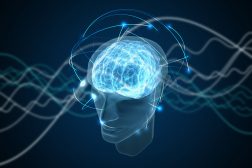Definition
noun, plural: opsonizations
The process at which opsonins bind to the surface of the antigen so that the antigen will be readily identified and engulfed by phagocytes for destruction
Supplement
Opsonization refers to the process or molecular mechanism that uses opsonins to make a molecule (e.g. antigen) palatable to the phagocyte. For instance, opsonins (e.g. antibodies) bind to the surface of the bacterial cell. This makes the phagocytes (e.g. NK cells and macrophages) interact strongly with the opsonins coating the bacterial cell. Thus, opsonins serve as marks or tags that designate an antigen or a molecule for ingestion and elimination through phagocytosis.
Phagocytosis is enhanced by opsonization because the opsonins that coat the target molecule results overriding the tendency of the cells to not come close together (Zeta potential). While the Fab region of the antibody binds to the antigen, its Fc region interacts with the Fc receptor on the cell surface of the phagocyte.
Examples of opsonins are antibody molecules such as the IgM that are capable of activating the complement system to increase the susceptibility of antigens to phagocytosis.
Apart from phagocytosis, opsonization can also promote antibody-dependent cell-mediated cytotoxicity. The latter is a process wherein a pathogen is opsonized and coated with IgG antibodies, and this results ultimately in the destruction of the antigen without phagocytosis. Rather, the immune cell that interacts with the IgGs bound to antigen is triggered to release lysis products.
Variant(s):
- opsonisation (British)
See also:
Related form(s):
- opsonise (verb, to bind to the surface of antigen to make the latter susceptible to the phagocytosis)







